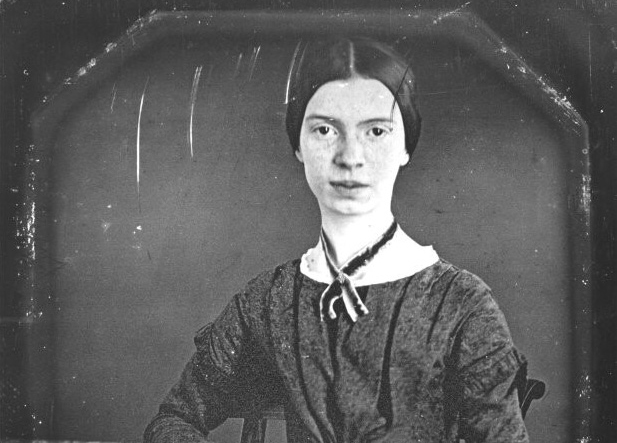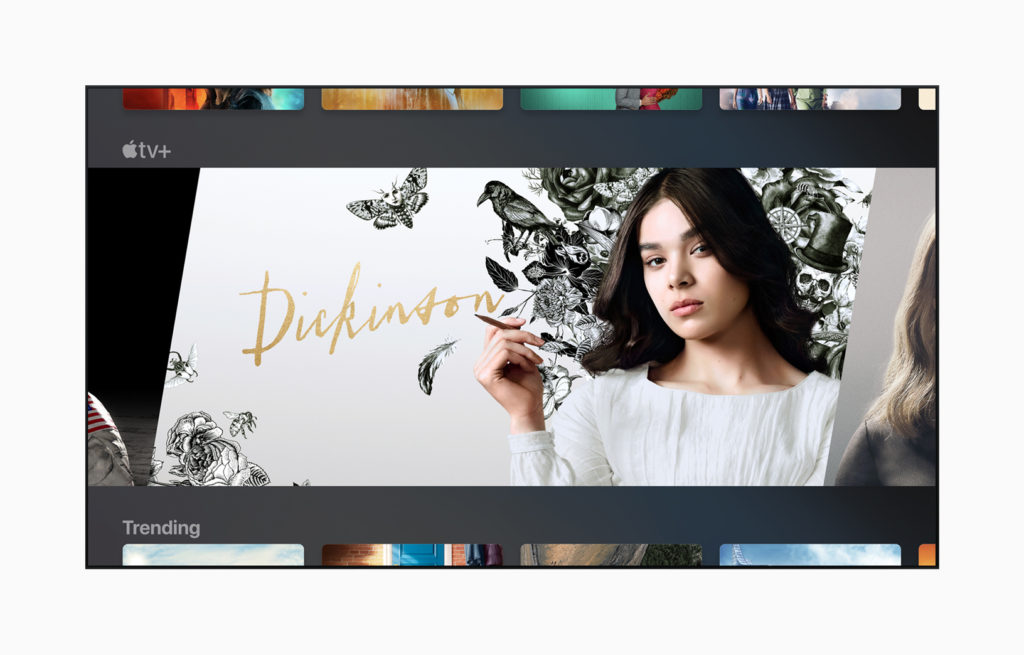An Initial Reaction to Apple TV’s Newest Show, Dickinson

The protagonist in Apple TV’s new show Dickinson is. . . not Emily Dickinson. The teasers show an aspirational writer, a go-getter who refuses her parents expectations for her as a “proper” nineteenth century woman. She is a punk, a feminist, teen rebel—wearing men’s clothes, dancing around playing air guitar, and posing with rocker hands for a portrait. How did we suddenly find ourselves in a John Hughes film?
We’ve seen this before, and I do enjoy these period pieces with anachronistic moments of modern sensibility. In A Knight’s Tale, it’s funny to watch spectators of jousting suddenly clapping along to Queen’s “We Will Rock You” or to see a portrait of Marie Antoinette vandalized with the words “Queen of Debt” like a photo in the Mean Girl’s burn book. But I am nonetheless a bit irked by what I’ve seen in these teasers of Dickinson.

Simply put, it seems the show has costumed Emily Dickinson to be an icon of contemporary white, female liberation—rife with all of the qualities one needs to stan such a queen. But my point is this: why use Emily Dickinson—her life, her name, her writing—to perpetuate this image? (Also, Death is a personified character played by Wiz Khalifa. A black man playing “Death” opposite a white girl? Really?)
Dickinson’s writing is an extension of a mostly quiet resistance that she led through seclusion. In part, she chose to escape the pressures of social and religious conditions and was ostracized because she was seen as a radical “unbeliever.” Her poems housed doubt and questions concerning the metaphysical and moral beliefs held by a strain of conservative Christianity. So her rebelliousness was less “Molly Ringwald rejecting the jock” and more “Nietzsche rejecting God.”
Dickinson was also never an aspiring writer in the way that we imagine aspiring writers to be. Much of her recognition and praise was posthumous. This quiet life that she led and these masterful poems that she penned were born of a brilliant mind, isolated from popular fame or awareness—though the show’s teaser leads us to think Emily Dickinson was a version of Hailee Steinfeld in all her pop glory.
I have mixed thoughts about Emily Dickinson being subsumed by the media machine to capitalize on these non-nuanced waves of feminism that we see in popular culture. On one hand, I am thrilled at the thought of people discovering Emily Dickinson for the first time and how women and young girls (the show’s likely target demographics) will see her as an inspirational figure. Yet, at the same time, how will this show’s interpretation eclipse a Dickinson, who was not the hashtag feminist that we might imagine her to be? The creators of the show could have easily written an original character with third-wave feminist traits, rather than impose them on a historical figure.
Would it be boring to watch a solitary Dickinson at a desk, writing for umpteenth hours a day? Of course. But that’s what she did, and now we have a significant cultural and literary inheritance. Will I watch the show? Of course. But I doubt I’ll see an accurate representation.
–Stacey Park
Share